How can students be "ordered" according to their needs?
According to the Ministry of Education and Training , after three years of implementation, Decree 116 has achieved certain results such as: the number of candidates and parents interested in teacher training majors has increased; the rate of candidates registering for admission, the admission score and the rate of candidates enrolling in teacher training majors have increased sharply in relation to other majors and training fields; and the quality of teachers has improved.
Decree 116, when issued, has many new and significant policies, attracting many excellent students to register to study and contribute to the education sector. Specifically, pedagogical students are supported with tuition fees and living expenses. Associated with the responsibility of students after graduation is to work for a certain period of time in the education sector or they will have to repay the support funds. Assigning responsibility to provinces and centrally run cities in assigning tasks, ordering or bidding for training pedagogical students. Students who are recruited according to assigned quotas but are not subject to ordering, assigning tasks or bidding are still entitled to support policies under the category of "training according to social needs".
However, the implementation of Decree 116 has encountered some difficulties such as: localities committed to placing orders but did not do so, leading to delays in payment of funds; regulations on bidding for teacher training do not have specific instructions; some localities have difficulties and do not have enough funds to support student teachers; the training of student teachers and the recruitment of students after graduation into the education sector are not synchronized; the monitoring of reimbursement of funds does not have detailed instructions...
Clarify responsibilities and remove obstacles
To overcome the situation where student teachers do not enjoy or are slow to enjoy support policies, the Government has assigned the Ministry of Education and Training to review, amend and supplement Decree 116 to remove obstacles and ensure feasible and effective implementation.
First of all, the Government stipulates that the State will support pedagogical students by assigning budget estimates, instead of letting localities balance them themselves as before.
At the same time, Decree No. 60 additionally clarifies the responsibilities of relevant parties such as the Ministry of Education and Training, the Ministry of Finance, provincial People's Committees, teacher training institutions, learners... in implementing the policy; especially clarifying the responsibility of ensuring funding to implement support policies for pedagogical students.
Decree 60 also provides clearer instructions on the procedures for paying reimbursements in cases where reimbursement is required according to regulations; the responsibilities of teacher training institutions, agencies assigning tasks and ordering pedagogical students in coordinating with agencies and individuals in paying support funds and recovering reimbursements; and the responsibilities of learners in implementing the commitment to reimburse expenses.
Decree No. 60 supplements the provision: The budget for implementing the policies in this Decree is balanced in the annual state budget expenditure estimates according to the current management decentralization. The central budget supports local budgets in implementing policies according to the principle of targeted support from the central budget for local budgets in implementing social security policies issued by competent authorities applicable for each period.
At the same time, Decree No. 60 also adds a transitional provision, according to which "The central budget supports local budgets to implement support policies for pedagogical students from the 2021-2022 school year to the end of the 2024-2025 school year according to the principle of targeted support from the central budget to local budgets to implement social security policies issued by competent authorities applicable for each period". This provision overcomes the situation where some localities cannot balance their budgets to implement support policies for pedagogical students, while ensuring implementation in accordance with the provisions of the 2019 Education Law.
 |
Students of Hue University of Education. |
To resolve difficulties in the implementation of Decree 116, ensure proper guidance in Article 85 of the 2019 Law on Education and implement timely support policies for pedagogical students, Decree No. 60 stipulates: Implementing support methods for pedagogical students in training in the form of budget allocation (training method according to social needs in Decree 116). At the same time, Decree No. 60 still stipulates the method of assigning tasks and ordering training for pedagogical students so that localities have the conditions to implement; remove the bidding method in higher education to comply with the provisions of Decree 32/2019/ND-CP dated April 10, 2021 of the Government regulating the assignment of tasks, ordering or bidding for the provision of public products and services using the state budget from regular expenditure sources and the actual implementation process.
In particular, Decree No. 60 amends and supplements a number of contents that specifically stipulate the responsibilities of agencies and units to ensure the feasibility of fully recovering the tuition and living expenses support funds for pedagogical students who are required to refund tuition and living expenses as prescribed. That is, the People's Committee of the province where the student registers permanent residence monitors, guides, and issues notices of recovering the support funds so that pedagogical students can fully pay back the amount that must be refunded as prescribed in Article 8 of Decree 116 and Decree 60.
For pedagogical students who are supported with funding in the form of assignment or order and are subject to reimbursement as prescribed in Clause 1, Article 6 of Decree 116, the agency assigning the assignment or order shall monitor, guide, and issue a notice of recovery of support funding so that pedagogical students can pay back the funding as prescribed in Article 8 of Decree 116 and this Decree. Within the time limit for performing the obligation to reimburse the funding, the student shall pay the reimbursement to the training institution or the agency placing the order or assigning the task (for students subject to ordering or assigning the task).
Teacher training institutions, ordering agencies, and agencies assigning the task of paying the amount recovered from pedagogical students to the state budget according to the provisions of Article 7 of Decree No. 11/2020/ND-CP dated January 20, 2020 of the Government regulating administrative procedures in the field of State Treasury and according to the provisions of the State Budget Law on management of recovered amounts paid to the budget.
Along with the above solutions, some education experts also believe that to ensure that human resources in the pedagogical sector are used reasonably and sustainably, teacher recruitment needs to have a clear and transparent roadmap, similar to the personnel allocation model in some specific sectors. If the training and recruitment process is unified from the beginning, pedagogical students after graduation will have a specific career orientation, avoiding the current situation of having a surplus of teachers in some places and a serious shortage of teachers in other places. Associate Professor, Dr. Tran Trung Tinh emphasized: There needs to be a clear decentralization of responsibilities between relevant units in the locality. When the decentralization mechanism is implemented reasonably, it not only helps reduce administrative pressure on schools but also contributes to improving the effectiveness of policy implementation, ensuring that this human resource is used reasonably and sustainably...
According to Associate Professor Dr. Bui Duc Nguyen, Vice Principal of Thai Nguyen University of Education, one of the biggest difficulties today is that ordering teacher training between localities is not really effective, not in accordance with the spirit of Decree No. 116. At the same time, the funding process also faces many obstacles, leading to delays in supporting living expenses for students. Currently, the demand for teacher training and recruitment in localities is increasing, even in many places there is a serious shortage. However, in reality, many pedagogical students after graduation still have difficulty in finding jobs in their majors. At the same time, the teacher recruitment mechanism is still mainly based on staffing quotas and civil service exams, leading to barriers in creating job opportunities for pedagogical students after graduation. Meanwhile, according to Decree No. 116, if students do not work in the education sector for the committed time, they will have to repay the entire training fee. This invisibly creates a lot of pressure on learners.
At the same time, according to Associate Professor Dr. Tran Trung Tinh, Principal of Can Tho University, identifying the specific agency responsible for managing, supervising and implementing policies will help localities be more proactive in forecasting teacher needs, thereby having appropriate training and job placement plans after students graduate.
Source: https://baophapluat.vn/thu-hut-sinh-vien-gioi-theo-nghiep-thay-co-post545158.html






![[Photo] President Luong Cuong receives US Secretary of War Pete Hegseth](https://vphoto.vietnam.vn/thumb/1200x675/vietnam/resource/IMAGE/2025/11/02/1762089839868_ndo_br_1-jpg.webp)
![[Photo] Lam Dong: Images of damage after a suspected lake burst in Tuy Phong](https://vphoto.vietnam.vn/thumb/1200x675/vietnam/resource/IMAGE/2025/11/02/1762078736805_8e7f5424f473782d2162-5118-jpg.webp)




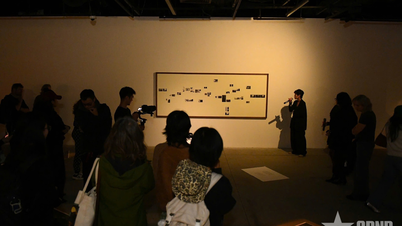


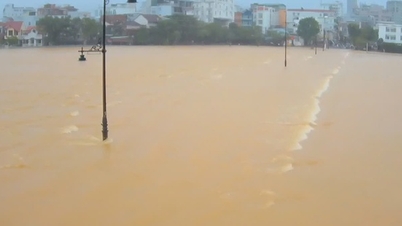








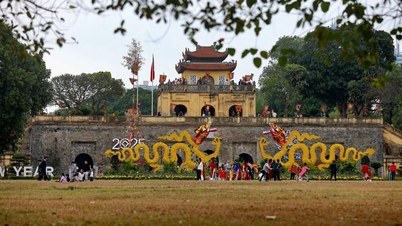





































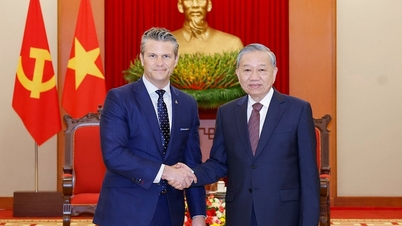


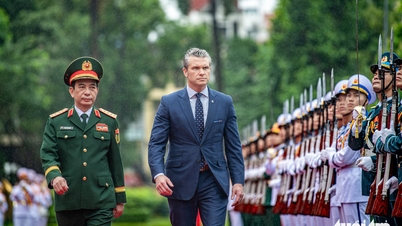








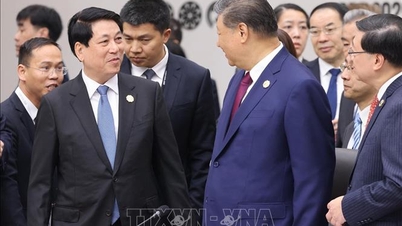

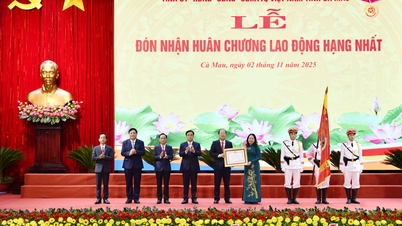


























Comment (0)